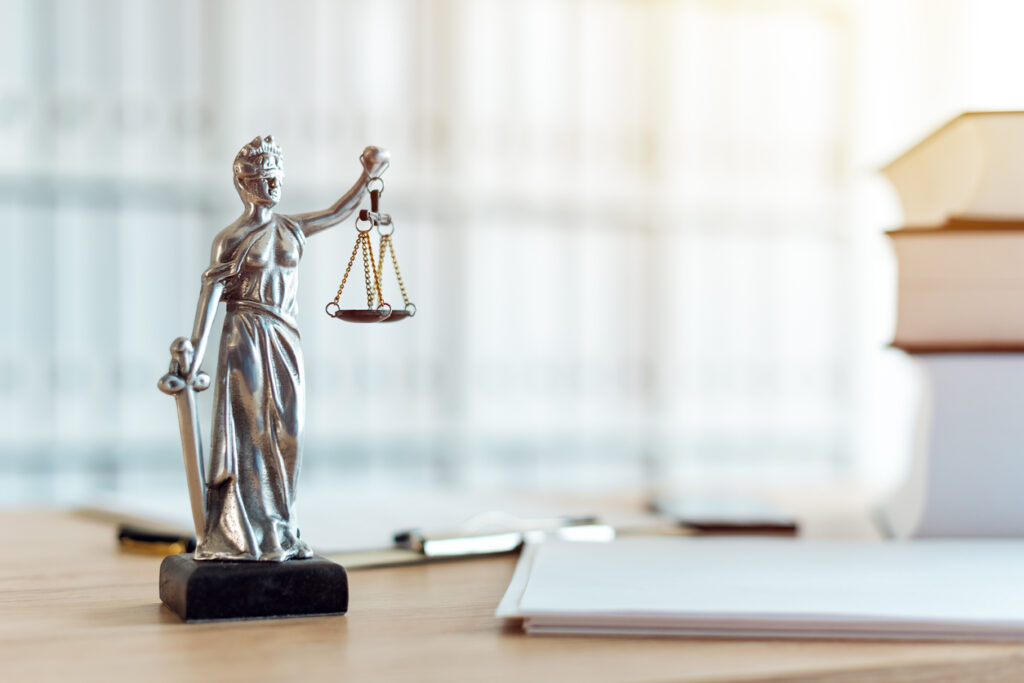In the first article of this nine-part series on ethics in the workplace, Luke Andreski opens his discussion with a brief look at the nature of ethics and why ethics are important for businesses and organisations of all kinds.
Ethics and morality are important. They are important whoever we are and whatever we do. This is a truism few would dispute. Who wouldn’t want to live in a more ethical world? How many of us would wish to see less rather than more morality in our personal or professional lives?
In fact, I’ll go further and make a more exaggerated and perhaps even provocative point: ethics and morality are more important today than at any point in the recent past. We are at a crossroads – one which is critical to the wellbeing of our society and which cannot be ignored.
Our ethics as individuals, businesses or nations reveal a great deal about who we are. Are we compassionate and caring or do we prize success above all other things? Are we tolerant and inclusive or is our mantra one of ruthless competition? Are we greedy or are we selfless?
Whichever of these descriptions apply, they tell us something about both our identity and our ethics. In fact, identity and ethics appear to be indivisible. Our ethics determine how we behave… and how we behave is central to who we are.
The meaning of ethics
In his masterpiece Nichomachean Ethics (340 BCE) Aristotle used the word ‘ethics’ (from the Greek ‘ethos’ or habit) to denote a form of rational and active engagement with life, leading to habits of good action. Our definition today is not so different. The Oxford English Dictionary defines ethics as the ‘moral principles that govern a person’s behaviour’. These principles describe what is good or what is bad and therefore what a person ought or ought not do.
My own definition is a little more general: ‘Ethics is a set of rules or a code of conduct that tells us how we should or should not behave’ – whereby ‘us’ means not only individuals but also collectives and organisations of all kinds: businesses, NGOs, governments or even nations.
Our ‘shared ethics’ is the glue which binds our society together, and the oil which allows the wheels of society to turn.
Why are ethics important – and why now?
At the beginning of this article I made a claim which some might find startling: that ethics are more important today than at any point in the recent past. To justify this claim I first need to touch on another question. What is ethics for? What is its purpose or point?
Shared ethical codes have been central to the rise of modern civilisation (Harari, 2014). There have, of course, been disputes, often with dire consequences, but fundamentally there has been enough commonality to support the creation of the complex social, technological and scientific world of today. Our ‘shared ethics’ is the glue which binds our society together, and the oil which allows the wheels of society to turn. Without a shared ethics we would be unable to cooperate with others. Their behaviour would be alien and unpredictable. We could not trust them, work with them or plan ahead.
A shared code of behaviour sustains – and is essential to – all forms of cooperation. And this is just as true in business and the workplace as it is of society as a whole.
But is there truly a pressing contemporary significance for the role of ethics in the modern world? I would suggest that there is – and the evidence for this is all around us.
Consider, for a moment, the state of our politics, both nationally and internationally.
Consider the rise of populist nationalism, of demagoguery and ‘alternative facts’.
Consider radicalisation of the right and the left, and the social media-fuelled polarisation of opinion and belief. Consider the divisions of Brexit in our country, and of the Democrats vs. Republicans in the US.
Consider, too, the relentless rollout of scandals which undermine our trust in businesses (exhaust diagnostics), in media (hacking and spin), in government (expenses, the selling of favours, the management of Brexit) and more generally (tax evasion, #metoo, growing inequality). And consider also the overwhelming threats of climate change and – some suggest – AI.
When has a shared understanding of how we ought to behave ever been more important or more necessary?
Which ethics is best?
Ethics sustains civilisations, as well as businesses and organisations. Our shared ethics sustains reliability, consistency, predictability and cooperation. We could not get by without it. But, in a discussion of this kind, how can we know if we are talking about the same ethics? And how can we know which ethics is best?
Let us first agree, as I hope I have successfully argued, that a shared ethics or code of behaviour is both necessary and beneficial to the functioning and success of businesses and organisations, just as it is for the functioning and success of civilisations.
Let us also agree that the sort of ethics we require is one capable of sustaining our lives, work, businesses and society – whilst also addressing the modern-day challenges outlined above.
If we agree upon just these two things, we immediately see that some forms of ethics simply won’t do.
Let us take for example the ‘winner takes all’ ethics of the unregulated marketplace. Capitalism could never have delivered such enormous benefits if ruthlessness and vicious self-interest were the only factors at play. Other essential inputs were needed: inputs like integrity, honesty and a determination to repay your debts – codes of behaviour rooted in the traditional ethics of the day. And, for businesses to thrive throughout a whole nation or across the whole world, these other factors require universality. I don’t just need to know that I can trust you when you’re right here in my face; I need to know that I can trust you when you are four thousand miles away.
Therefore we need an ethics that is significantly more subtle than selfish competitiveness or ruthless individualism.
Whichever broader ethical code you subscribe to, there are three uncontroversial core moral aims that we can all share, which provide a basis for addressing the challenges of the modern world.
What morality cuts the mustard?
I would like to suggest three core moral aims, which I believe few will contest. These are:
- To nurture others
- To nurture our species as a whole
- To nurture all life
The first two of these aims – the nurturing of humans as individuals and the nurturing of humanity as a whole – are not unusual. They are found in many ethical systems of the past. They are what allow us to trust one another. The moral person does not just look out for themselves, they look out for the people around them, also.
The moral person doesn’t just care about their own isolated community of neighbours and friends, they recognise that we are all in the same boat, all part of the same species, and that for a child to suffer on the other side of the world is as bad as for a child to suffer in our neighbour’s home. And, if this defines an ethical person, an ethical person becomes, almost by definition, a person you can trust.
The third moral aim points us towards restoring our biosphere to good health and thus preventing life-threatening climate change. In asserting this aim, we assert that we value not just the thriving of each other, our communities, our organisations and businesses, but also the thriving of all the life around us, of the biological world upon which our civilisation, and potentially the very survival of our species, depends.
These core moral aims are very basic and in no way original. Nevertheless, they offer a powerful basis for ethical behaviour and the making of moral decisions.
So – I confess – I have ducked the question of which ethics is best. This is, in any case, a dangerous and divisive question, and it may not even be a meaningful one.
Instead of going down this route, I suggest that whichever broader ethical code you subscribe to, here are three uncontroversial core moral aims that we can all share, and which provide a basis for addressing the challenges of the modern world. They are also principles which we can apply in discussing the morality of our businesses or workplaces, and how this can be enhanced.
[cm_form form_id=’cm_65a14c3f5da64′]
Coming soon
In my next article I consider the key characteristics of ethical organisations. I ask, “Is ethics a success factor in modern business?” – and I suggest ways in which we can help the organisations we work for or lead become more ethical.
In the meantime, I would very much like to encourage you to leave comments in the comments section below and I will attempt to respond as quickly as I can.








8 Responses
I’m pleased and excited to
I’m pleased and excited to announce the launch of my new book ‘Short Conversations – During the Storm’ this week!!!
I hope you can find the time to dip into it.
It’s about the threats to social and environmental well-being which we all face, and the cognitive tools we need to make sense of our world.
You can find it here: https://www.amazon.co.uk/Short-Conversations-About-Everything-Matters/dp/B09M55536W
Please give the book a read and a plug with colleagues and friends! In fact, if you’re stuck for Christmas presents…..!
If you enjoyed this article,
If you enjoyed this article, please take a look at my latest book:
Short Conversations: During the Plague
https://www.amazon.co.uk/Short-Conversations-About-Everything-Matters/dp/B089M5BGGF
“Short Conversations” evolved on Twitter. For that reason, it’s a book about everything – because that’s what you find on Twitter: just about everything.
It asks questions like:
– Can we fix a broken media?
– Can we become cleverer?
– Is a better world possible?
– Is eating meat a crime?
– Is a virus killing our world?
– Are there reasons for hope?
All these questions are there on social media, with a thousand different answers to each one.
And that’s a problem…
With so many answers on offer, how can we tell which are the right ones?
Well, I’m going to surprise you… Good answers can be found.
If you go back to basics and build up from there; if you use both common sense and logic; if you root your thinking in the evidence; and if you assert the moral context – then you’ll find answers with heft; answers you can count on; answers you can use.
So, “Short Conversations” is about these questions and many others. It asks questions, it identifies problems, and it offers answers.
Answers on which you can count.
For a graphical guide to
For a graphical guide to approaching leadership decisions ethically, please see here:
https://andreskiprojectmanagement.wordpress.com/2019/11/22/the-practice-of-ethics-a-leadership-guide/
If you are interested in the
If you are interested in the wider issues of ethics and the applicability of moral intelligence to the modern world, please take a look at my recent book on this important topic:
http://www.amazon.co.uk/Ethical-Intelligence-Luke-Andreski/dp/179580579X
For a longer version of this
For a longer version of this article, please take a look at the Phase 3 Insights page: https://phase3.co.uk/the-point-of-ethics/
And please come back with any replies, suggestions or insights in the Comments section here!
Absolutely!!!!
Absolutely!!!!
Luke’s push for a moral
Luke’s push for a moral perspective is essential as we perhaps enter a radical adaption stage, facing challenges and imminent threats on many fronts. A rules-based approach is questionable and in support of Luke’s sound thinking and guidelines, here are triggers for further thought:
https://www.linkedin.com/pulse/enlightened-ethics-execution-part-1-graham-williams/
https://www.linkedin.com/pulse/enlightened-ethics-execution-part-2-graham-williams/
I loved the two-part article
I loved the two-part article from Graham Williams mentioned above. I think there is an increasingly powerful sense that a reassertion of ethics is becoming a survival trait for modern business – if not for our society as a whole. This may sound dramatic, but take even a little time out to participate in social media and the anger and polarisation you find there really supports this need.
It’s important to stress that I’m not talking about an ethics linked to any specific religion or creed, but to some very basic and uncontroversial moral aims which almost everyone would consider worthwhile.